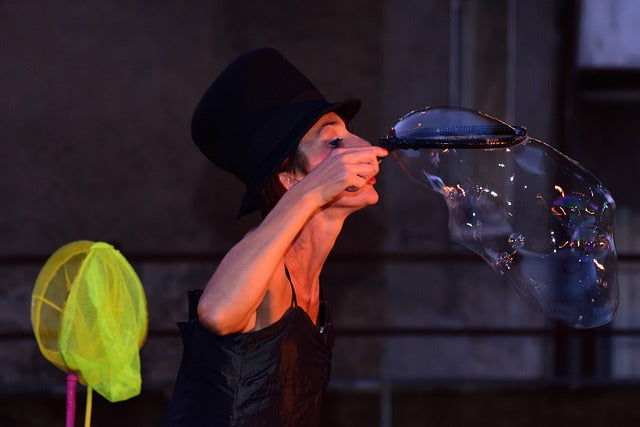Fire Safety
Fire can be dangerous please take note of the following advice:
The below information is intended as a guide only. Professional tuition and supervision are essential at all times and for all skill levels.
Please note that JWS Europe Ltd will only sell fire props to adults aged 18 year or more. Only adults should use these props.
Equipment you will need
- Fire blankets
- A bucket of sand,
- A damp thick towel
- A fire extinguisher. (Make sure you have an extinguisher suitable for putting out liquid fires – CO2 or foam extinguishers are best. Water fire extinguishers are NOT suitable for liquid based fires. Make sure you and your safety officer know how to use your fire extinguisher and the relevant safety considerations involved in their use).
- Make sure you wear thick, resistant clothing (denim is great). Absolutely no synthetic clothing as this is very volatile. Avoid baggy or loose clothing.
- A Hair tie - make sure long hear is properly dealt with and tied with a non-synthetic hair tie. Make sure you haven’t use flammable hair products before spinning.
- If performing, you will need public liability insurance with specific fire cover. Please make sure this is in order before performing.
- Non-Absorbent gloves (use these to squeeze extra fuel off your props and in to your fuel pot). Avoid spinning off excess fuel. It could reach others and is bad for the environment.
- A reliable, safe lighter.
- Your fire prop’s instruction manual.
Before you start
- Always practise with your prop unlit until you are highly competent. Confidence is as essential as understanding the characteristics of your prop.
- Never use your props alone.
- Never spin fire unless you are absolutely 100% comfortable.
- Check your props every time before you spin. Check for loose or worn components. If in doubt, do not use the prop.
- Never use fire equipment under the influence of alcohol, medication or narcotics.
- Conduct a thorough risk assessment of the site you intend to use. Avoid areas with buildings, foliage or trees. Some parks will not allow fire spinning. Please check beforehand.
- Do not spin fire in windy conditions.
- Keep your fuel well away from your performance area. Do not keep fuel in an open container.
Important Notes on Fuel
The only fuel we recommend is paraffin (also known as kerosene, Parasene and other brand names). Paraffin burns at a relatively low temperature which helps to minimize the risk of burns. Paraffin has quite a high flash point (the temperature at which it will ignite from a naked flame) and needs to be soaked into a wick before it will ignite. Paraffin is non-explosive under normal conditions. There are other suitable fuels but none as safe as paraffin.
NEVER USE PETROL, GASOLINE, DIESEL OR THEIR DERIVATIVES – THESE FUELS READILY EXPLODE!
Paraffin is very toxic. Avoid contact with skin and eyes. If swallowed, do not induce vomiting - drink water and seek immediate medical advice.
Store your paraffin in secure metal containers and clearly label. Keep away from children.
When you start to spin
- Perform your first spin in daytime to grow confidence.
- Light props away from your body and face.
- Only perform tricks you can do comfortably - do not attempt new tricks you have not perfected.
- Keep your audience at a distance
- Extinguish your props using a damp towel or fire blanket.
When not using your equipment
- Store props in a well-ventilated, non-living space – long term exposure to fuel fumes is hazardous to your health.
- Do not store props in direct sunlight or high temperature environments.
- Keep fuel and props well out of reach of children and pets.
- Wick covers or socks can be used to protect wicks and stop them marking clothes and other objects.
- Ideally fire props should be stored on a locked metal box – many insurance companies require this in their terms and conditions.
Fire Breathing and Body Burning
These are the most dangerous of fire arts. We strongly recommend you do NOT breathe or perform BODY BURNING. People have died from poor practice of these arts. If you are going to, research the best practices and dangers thoroughly first. Practice the technique with water first and learn from an experienced performer. Always test your equipment thoroughly for any damage or irregularities before every performance or practice session. The risks associated with fire eating and breathing are significantly higher than with other fire based skills, and as such the safety margin and precautions must be adapted appropriately. JWS Europe Ltd accepts no responsibility for any injury, both short term and long term, caused by or linked with fire eating, fire breathing or body burning. If you perform these skills you are solely responsible for ALL potential consequences.

